
* Algun@s individu@s Anarquistas Revolucionari@s Insurreccionales
Saludos al Primer Congreso Anarquista de México. Nos presentamos como individuos que, al compartir las inquietudes que abajo les explicamos, nos hemos dado cuenta de que éstas son compartidas por compañerxs de otros lugares, implicadxs, al igual que nosotrxs en la lucha pública o abierta y también en la clandestina o insurreccional, siendo por esta razón que preferimos comunicarnos por escrito con el fin de salvaguardar nuestro anonimato, no por cobardía, sino por propia seguridad.
A continuación, el texto que nos gustaría leyesen íntegramente dentro (y no al final) de la sección que consideren más indicada en la sesión del sábado 30 de abril. Por ello su brevedad.
Un fraterno saludo
Nos presentamos como individuos de diversos lugares del país implicadxs en distintos colectivos anarquistas y grupos de afinidad e iniciativas anarquistas insurreccionalistas que, por conservar nuestro anonimato y seguridad, les acercamos por escrito una percepción que hace tiempo estamos observando y padeciendo al vernos en ambos tipos de lucha.
Con el tiempo se está evidenciando una fractura entre estos dos tipos de lucha anarquista, pudiendo escuchar de algunos de los autodenominados insurreccionalistas a los no-insurreccionalistas que son reformistas, anarquistas de salón, fresas, burgueses, acomodados, populistas, que su lucha (actos públicos, publicaciones, charlas,…) realmente no son luchas. Mientras, los autodenominados anarquistas a secas tachan a los insurreccionalistas de violentos, inmaduros, cobardes, sin ideas elaboradas, justificando por ello la represión del Estado (siempre presente, tanto si hay acciones insurreccionales como si no) y subordinándolos a la auto-censura al no poder argumentar por conservar su anonimato.
En ocasiones se ha caído en la grave contradicción de argumentar que lxs insurrectxs han venido a “cagar nuestro movimiento anarquista”. ¿Cuál movimiento? ¿Movimiento de quien? ¿Quién tiene la patente del anarquismo en México?
Nosotrxs a su vez creemos que la crítica es muy valida y necesaria para que la lucha avance en un sentido objetivo, pero entre la critica y la criminalización, la marginalización o el señalamiento hay una diferencia abismal.
Se contempla pues, en ambos, una actitud autoritaria de vanguardia ideológica capaz de juzgar, incluso públicamente, qué y quiénes son o no anarquistas, una apropiación del movimiento, convertido en objeto de propiedad y reivindicación por sus autorxs y el objetivo de reforzar unas siglas, una imagen, un ego; una sutil exigencia de posicionarte conmigo o con lxs otrxs, reduciéndolo todo a 2 elecciones que parecen imponerse en el imaginario colectivo; la marginación y desprecio directo e indirecto hacia quienes son del “otro bando”.
Como consecuencias vemos que se corrompe la lucha en divisiones y enfrentamientos absurdos, continuos chismes en internet y de boca en boca, falsa solidaridad e hipocresía entre compañerxs, innumerables colectivos de distinto nombre pero formados por las mismas personas, que suelen ser un grupo muy reducido o incluso individuos, un gran sentido de competencia y tanto entre colectivos como entre grupos de acción, publicaciones y reivindicaciones de gran prepotencia, la prevalencia de problemas personales por encima de las acciones, egocentrismos, surgimientos de vanguardias libertarias que creen poseer la verdad… Es decir, debilitamiento de un movimiento anarquista que más parece estar estático y de una lucha más ficticia que real, impidiendo pues su efectividad.
Como alternativa, proponemos acabar con el posicionamiento irracional; contemplar la lucha insurreccional y la pública como parte de un todo, tal y como ha sido siempre (¿no es hipócrita idolatrar a Magón, Zapata o Praxedis Guerrero y luego criminalizar a los insurreccionalistas de hoy día? ¿no es hipócrita criticar las manifestaciones, concentraciones, charlas y talleres a través de los cuales nos conocemos y nos introdujimos en la lucha?); reconocer las diversas trincheras, las cuales necesitan estar en contacto, coordinadas; ver al “otro” como un “nosotros”, integrándonos como compañerxs, no como enemigos internos, dejar de andar acusando arbitrariamente de infiltradxs y policías a cualquiera que tenga un discurso firme; sacar publicaciones y material que no sean única y estrictamente sociales o insurrecionales, sino mezclar sus aportaciones, pudiendo ver ambos aportes conjuntamente; ser conscientes del vínculo común y su importancia; hacer de la fraternidad algo vivencial y Constructivo, más allá de un mero concepto teórico.
Y si todo esto no nos convence o creemos que debe ser el otro bando quienes deban dar el primer paso, tal vez tengamos que debatir directamente y sin hipocresía lo que ya advertían unxs compañerxs: ¿somos compañerxs o no somos compañerxs? ¿Estamos contra el estado o no lo estamos? Contra el poder y por la construcción-destrucción no debe de haber mediación. ¿Deben la lucha pública, abierta y social y la clandestina, insurreccionalista y de acción directa ir por caminos separados e independientes? Nosotrxs, por supuesto, no lo creemos.
Algun@s individu@s Anarquistas Revolucionari@s Insurreccionales
Mexico: A text by some revolutionary insurrectional anarchist individuals to the First Anarchist Congress of Mexico
Some Revolutionary Insurrectional Anarchist individuals
Greetings to the First Anarchist Congress of Mexico. We introduce ourselves as individuals who, in sharing the concerns that we explain below, have realized that these concerns are shared by comrades elsewhere who are involved, as we are, in public or open struggle and also in clandestine or insurrectional struggle–this being the reason that we prefer to communicate in writing with the goal of safeguarding our anonymity, not out of cowardice but for our own security.
We would like the text that follows to be read in full during (and not at the end of) the section that is considered most appropriate during the session on Saturday April 30th. Thus its brevity.
A fraternal greeting
We introduce ourselves as individuals from various parts of the country involved in different anarchist collectives and affinity groups and insurrectional anarchist initiatives who, in order to maintain our anonymity and security, bring to you in writing a perception that we have long observed and endured by seeing ourselves in both types of struggle.
Over time, a fracture is becoming evident between those two types of anarchist struggle; one can hear some of the self-described insurrectionalists speak of the non-insurrectionalists as reformists, salon anarchists, posh, bourgeois, well-off, populists, that their struggles (public actions, publications, lectures) are not really struggles. Meanwhile, the self-described “dry” anarchists accuse the insurrectionalists as violent, immature, cowardly, and lacking in elaborated ideas, thereby justifying State repression (which is always present, with or without insurrectional actions) and subordinating them to self-censure due to their not being able to argue while preserving their anonymity.
On occasion some have fallen into the serious contradiction of arguing that the insurrectionalists have come to “soil our anarchist movement.” What movement? Whose movement? Who owns the rights to anarchism in Mexico?
We, in turn, believe that critique is very valid and necessary so that the struggle advances in an objective sense, but there is a vast difference between critique and criminalization, marginalization or assignation.
Evident in both camps, then, is an authoritarian attitude of an ideological vanguard capable of judging, even publicly, what and who are or are not anarchist(s), an appropriation of the movement, turned into an object of property and of authorship claims, and the object of reinforcing some signs, an image, an ego; a subtle demand to position yourself with me or with the others, reducing everything to 2 choices that seem to impose themselves on the collective imagination; marginalization and direct or indirect contempt toward those on the “other side.”
As consequences we see the corruption of the struggle in absurd divisions and conflicts, continual gossip on the internet and by word-of-mouth, false solidarity and hypocrisy between comrades, innumerable collectives with different names but formed by the same people, who tend to be a very small group or even individuals, a huge sense of competition as much between collectives as between action groups, proclamations and claims of great arrogance, the prevalence of personal problems over actions, egocentrisms, emergences of libertarian vanguards who believe they possess the truth… Which is to say, the debilitation of an anarchist movement that appears to be more static and of a struggle more fictional than real, impeding thus its effectiveness.
Alternatively, we propose to end with the irrational positioning; to consider the insurrectional struggle and the public struggle as part of a whole, and always having been so (is it not hypocritical to idolize Magón, Zapata or Praxedis Guerrero and then criminalize the insurrectionalists of today? is it not hypocritical to criticize the demonstrations, rallies, lectures and workshops through which we met each other and came to know each other in the struggle?); to recognize the various trenches which need to be in contact, coordinated; to see the “other” as one of “us,” to integrate ourselves as comrades, not as internal enemies, to stop going around arbitrarily accusing as infiltrators and police anyone with a solid discourse; to make publications and materials that are not only and strictly social or insurrectional, but mix their contributions, being able to see the contributions of both together; to be aware of the common bond and its importance; to make fraternity something living and Constructive, and more than a mere theoretical concept.
And if all that does not convince us, or if we believe that it should be the other side that should take the first step, perhaps we have to debate directly and without hypocrisy what some comrades advised: are we comrades or are we not comrades? Are we against the state or are we not? Against power and for construction-destruction there should be no mediation. Should the public, open, social struggle and the clandestine, insurrectionalist, direct-action struggle go their separate and independent ways? We, of course, do not believe so.
Some Revolutionary Insurrectional Anarchist individuals.
from culmine, translated by War On Society (the text was sent to the Congress but they did not care to share it):







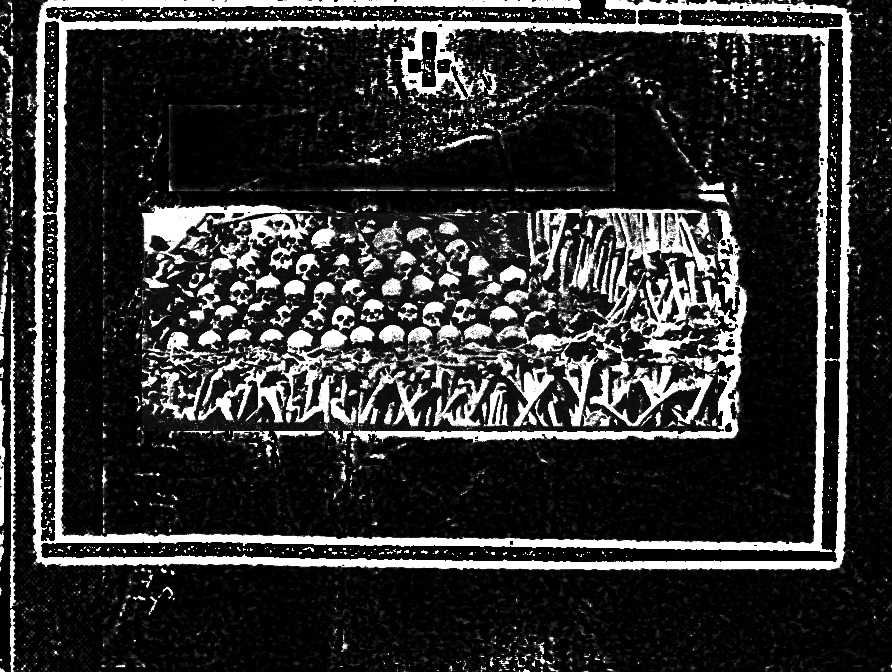
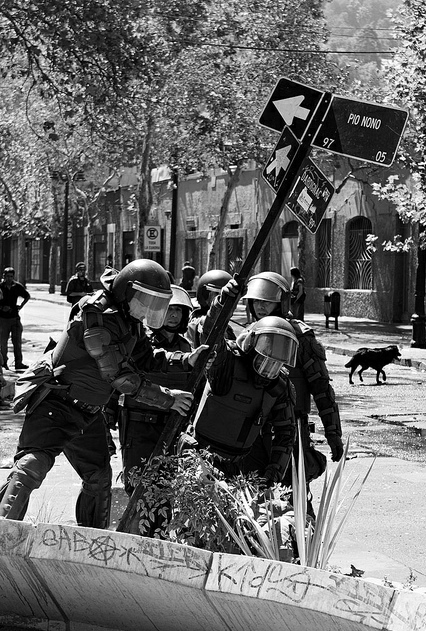



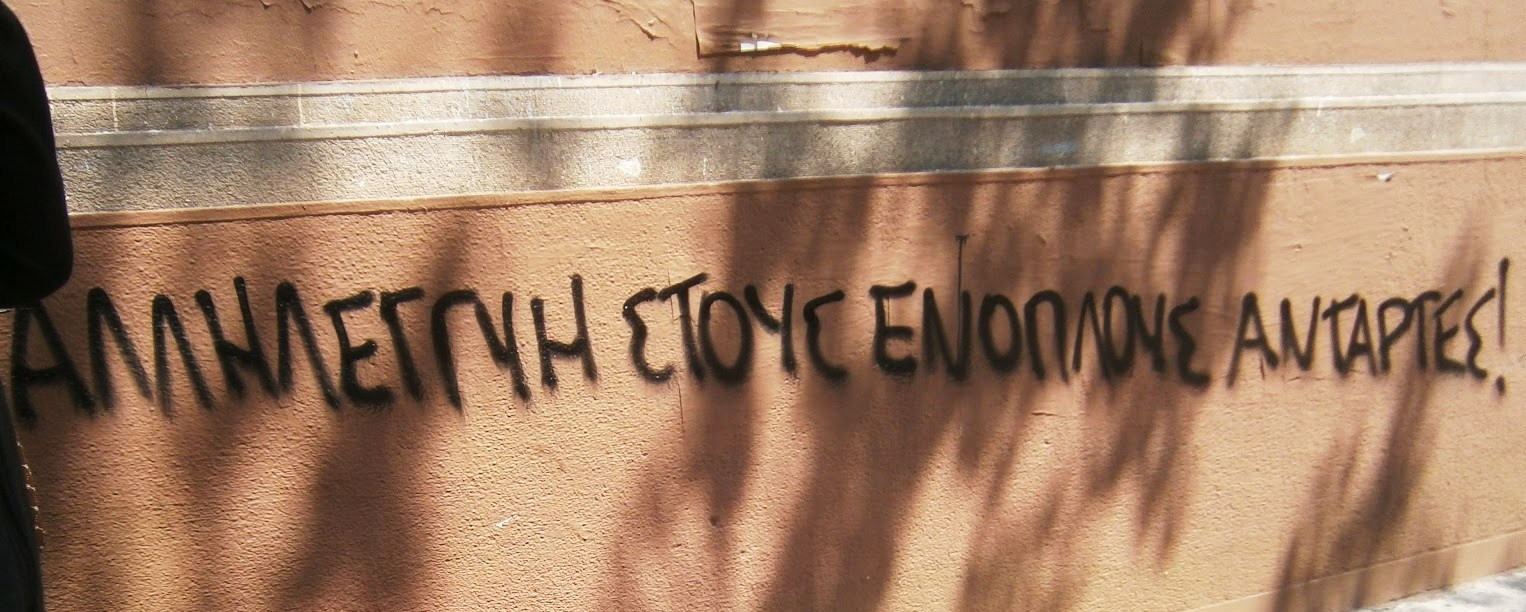

![Eurorepressione - Sulla conferenza a Den Haag sul tema "Anarchia" [corretto]](http://25.media.tumblr.com/tumblr_m0jvngOXtY1qa2163o1_1280.jpg)
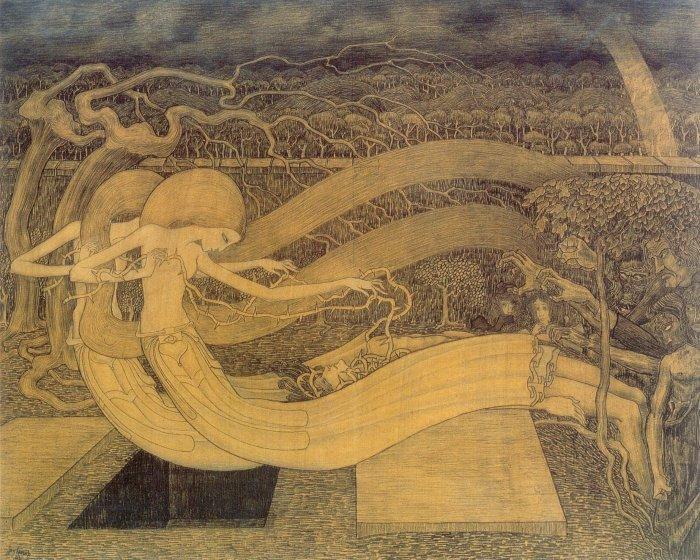
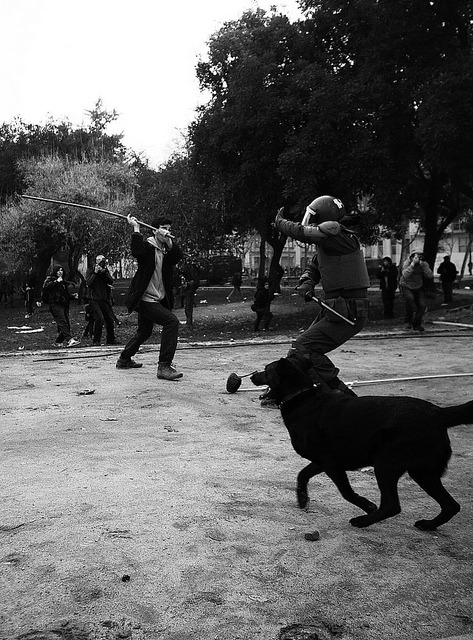
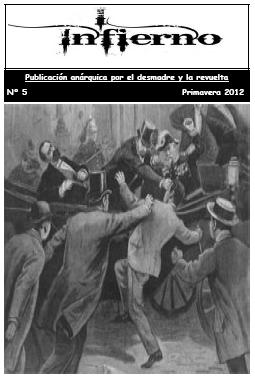
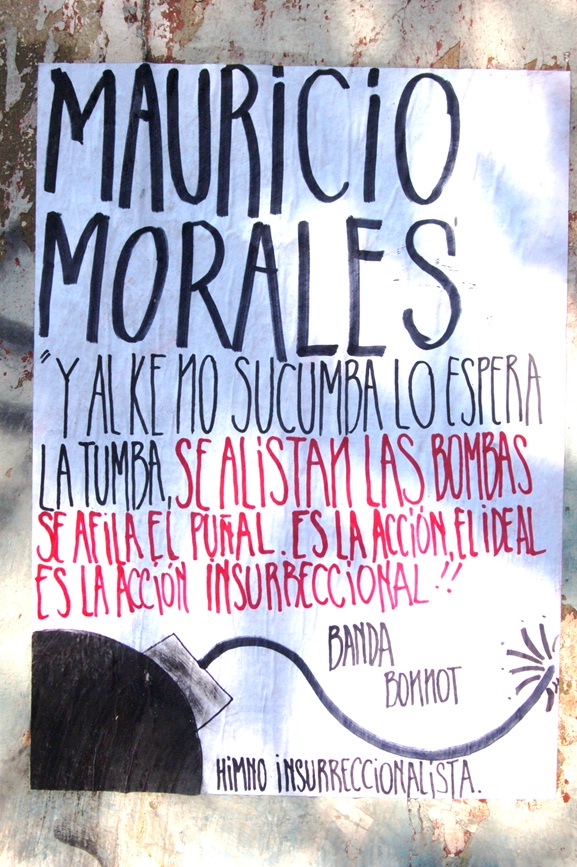
![A tres años de la Partida de Mauricio Morales: De la Memoria a la Calle [Stgo.]](http://metiendoruido.com/wp-content/uploads/2012/05/mmacividad.jpg)

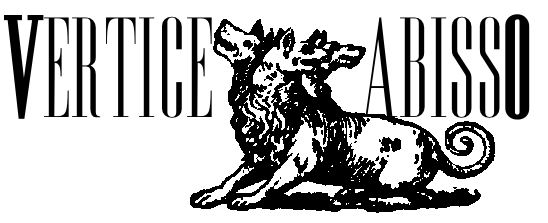



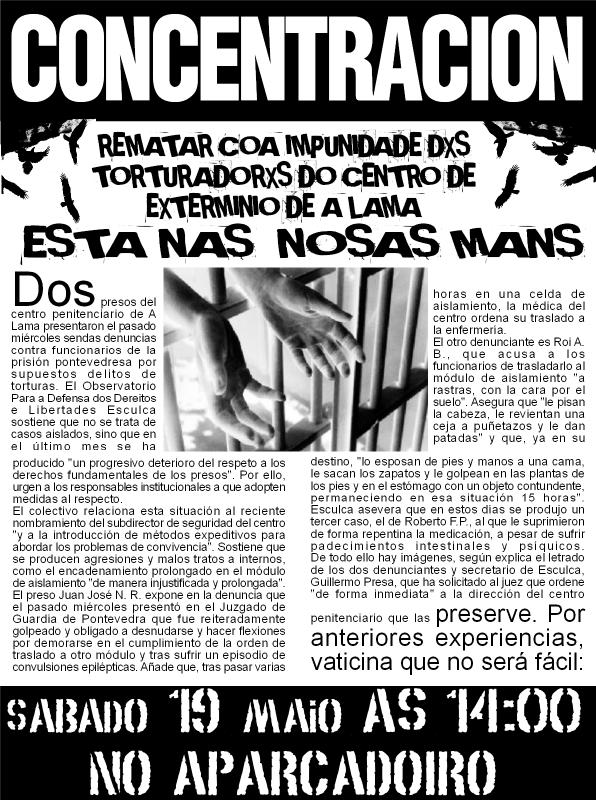

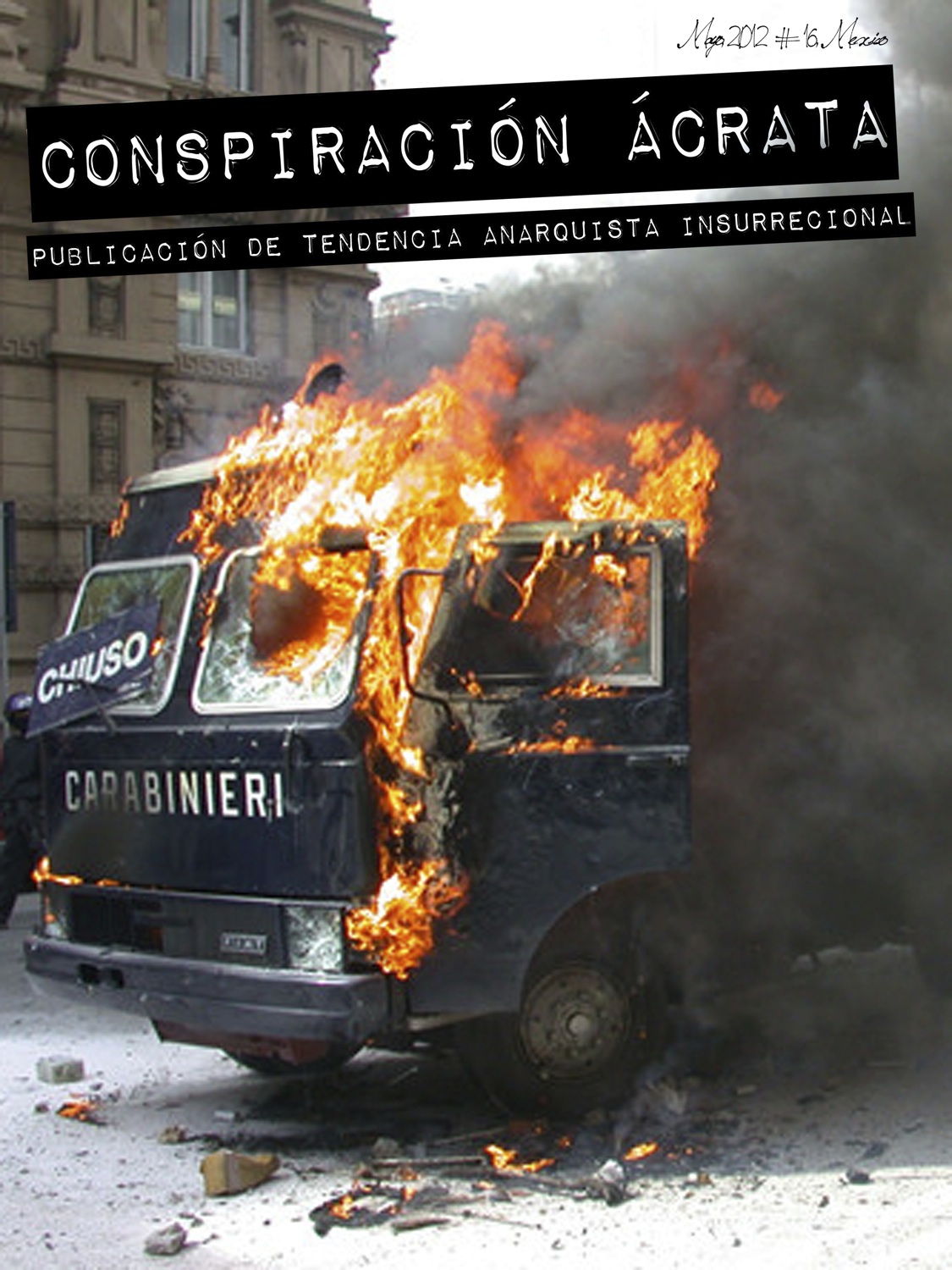

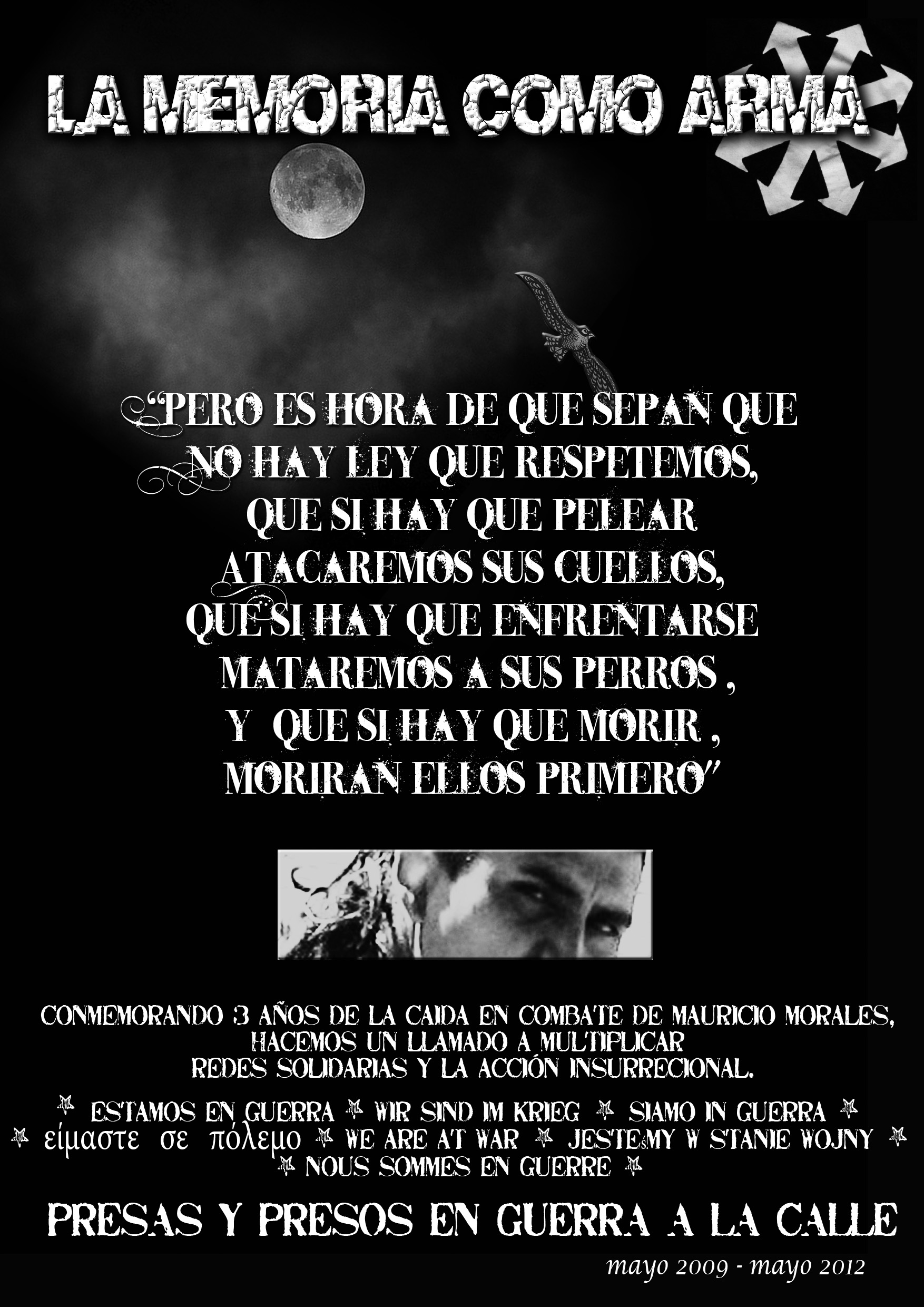
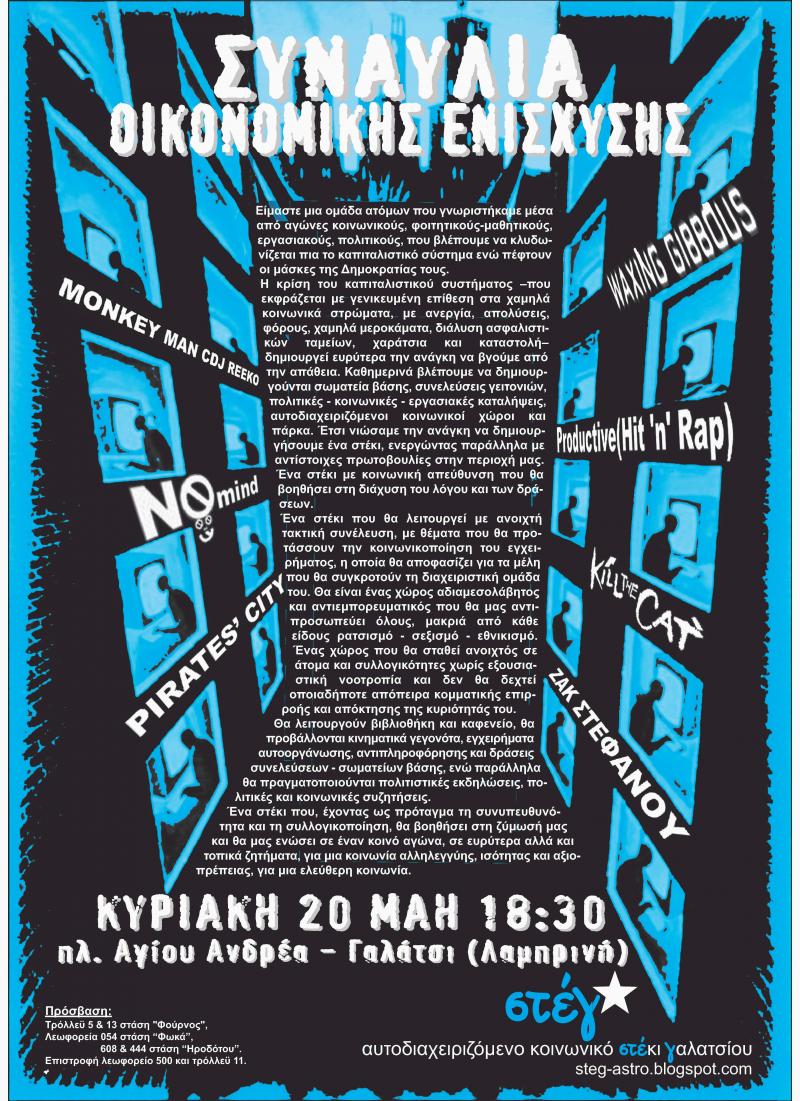








Nessun commento:
Posta un commento